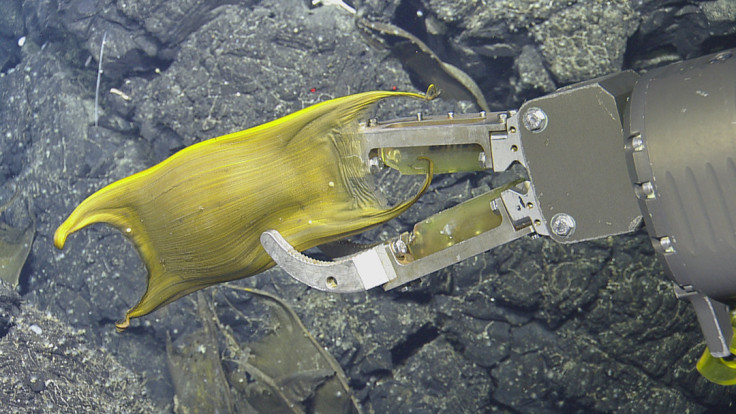How these close relatives of sharks use super-hot volcanic sea vents as 'nurseries'
Researchers observed over a hundred egg casings of the creatures near volcanic vents spewing out water heated at several hundred degrees.

Pacific white skates, the bug-eyed close relatives of sharks, living in deep-sea waters can be just as good mums, a new study detailing the unique positioning of their eggs has shown.
In 2015, a group of researchers from the University of Rhode Island and the Charles Darwin Research Station set out to explore the underwater mountains in the depths of the Galapagos Marine Reserve.
As they piloted their remote-controlled vehicle deep through the waters of the region, several skate egg cases nearly as big as a phablet were observed positioned in an unusual way.
"We were on a really deep dive in a hydrothermally-active rift valley, with walls 30 metres tall on either side, and the ROV was meandering back and forth looking for vents," expedition leader Brennan Phillips said, detailing the discovery of the eggs.
They plucked out a few egg samples and noted the location of the discovery, only to find later that the eggs were incredibly close to hydrothermal vents or the volcanic seafloor openings from which hot mineral-rich water spews out.
In all, the group observed as many as 156 egg casings, of which 58% were found in close proximity to the black smoker, which is the hottest kind of volcanic sea vents.
This led the researchers to posit that the location, where waters were warmer than normal, was intentionally being used by the creatures to incubate their eggs quickly. Typically, skate eggs hatch after four to five years of nursing but lukewarm waters can bring that down by months, National Geographic reported.
The eggs were also not extremely close to the vents. Hydrothermal vents could heat to several hundred degrees and placing an egg just next to the opening would essentially mean killing the creature off before its birth, the researchers said, according to a report in Phys.org.
Hydrothermal vents were first discovered in 1977 and since then, researchers have spotted a few marine creatures thriving around them, despite the super-hot conditions. This is the first time such behaviour has been noted in the Pacific white skates.
Meanwhile, on land, a few rare bird species and now-extinct dinosaurs are known to have shown similar nesting traits on volcanically-heated soils.
"Seafloor volcanism comes and goes, and it is often one of the causes of mass extinctions," Phillips added, stressing on the unique way these creatures might have adapted to the inhospitable environment.
"It's interesting to me that we're seeing sharks and skates thriving around volcanoes and vent sites like they're especially resilient and have evolved to withstand the hot water environment."
The study of skate egg casings has been described in the journal Scientific Reports.





















